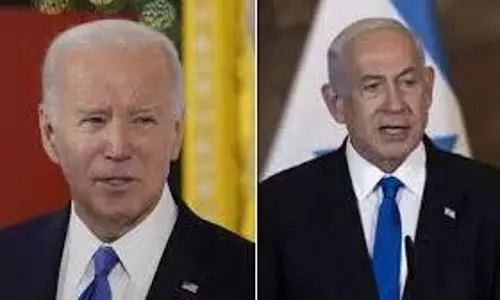
UN to train 22,000 staff members on blockchain and Web3 technologies
text_fieldsThe United Nations Development Programme (UNDP) has unveiled plans to inaugurate a blockchain academy in 2024, aiming to educate its workforce on emerging blockchain and Web3 technologies.
This initiative is anticipated to involve the training of approximately 22,000 staff members worldwide.
The UNDP, known for its dedication to aiding impoverished regions through strong policies, skills enhancement, partnerships, and institutional support, seeks to leverage blockchain's potential to foster digital identity applications, tokenise real-world assets, enhance supply chain transparency, and promote financial inclusivity across 170 nations.
To materialise this initiative, the UNDP has forged a partnership with the Algorand Foundation, a non-profit organisation that advocates for the eco-friendly Algorand blockchain.
Robert Pasicko, UNDP's expert in alternative finance and low-carbon development, unveiled these plans at the Algorand Impact Summit held in New Delhi on November 30. He emphasised the significance of the Algorand Blockchain Academy in equipping the UNDP team with the necessary tools to confront global challenges using blockchain technology.
The program aims to offer a comprehensive curriculum comprising recorded lectures, interactive workshops, and practical assignments, designed to familiarise UNDP staff with the intricacies of blockchain and Web3 technologies.
Doro Unger-Lee, head of education and inclusion at Algorand Foundation, emphasised the pivotal role of this education and tooling initiative in identifying and implementing practical blockchain use cases to advance Sustainable Development Goals across various domains.
The program is set to commence its beta phase between January and March 2024, progressively expanding thereafter. Notably, this move by the UNDP aligns with the growing interest in the Web3 sector globally, where nations are actively seeking to regulate this emerging domain.
Regulatory frameworks such as the Markets in Crypto-Assets Regulation (MiCA) in Europe, approved in October, prioritise consumer protection, market manipulation prevention, and combating financial crimes within the crypto sector.
Moreover, Dubai and Abu Dhabi have introduced their own crypto laws, while G20 nations are implementing a crypto roadmap finalised during India's presidency. These regulations primarily aim to ensure a safe environment for individuals exploring and engaging in the Web3 sector, projected to generate numerous job opportunities worldwide as the sector continues to expand.


















